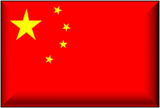West
East Corporation
中国的合作伙伴 : 投资中国,在中国做生意,在中国咨询,使中小型企业国际化
The International Monetary Fund forecasts on the Chinese economy
November, 2012The International Monetary Fund has released its updated report on the growth forecasts for the world economy. With regard to China, the expected rates of growth of gross domestic product reflect a slowing economy, explained by the effects of the international economic crisis and a protective attitude toward inflation and tensions on the real estate market.
The International Monetary Fund forecasts about China's economic growth draw attention to the need for the Chinese Government to promote a more relaxed monetary policy and adopt measures to stimulate the local governments. At present, in fact, although the rate of growth of gross domestic product remains above 7%, the slowdown in China in 2012 is significant. "The real activity in all advanced economies continues to be disappointing, while the weak U.S. recovery and the recession in Europe cause a decline in exports throughout the East Asia-Pacific area," says the dossier of the International Monetary Fund. A positive aspect is, however, the growth of individual consumption, supported by an increase in wages in the country estimated at around 13% in real terms, year on year. The Analysts seem to agree that, beyond the glare of the international economic crisis on the Chinese economy, the downturn is also physiological to an economy that has always recorded very high growth rates in recent years and now seems to move towards a natural and inevitable stabilization.
“China's economic growth is stabilizing and it is in a relatively good phase.”
According to the Analysts, this would be interpreted as the result of the economic stimulus package approved by the Government in 2008 to counter the global crisis: these actions, in fact, resulted in a significant increase in inflation and property prices, so as to fear the bursting of a bubble speculative. In the face of this risk, starting from 2010 the Chinese Government has adopted strict restrictions, which resulted, in one hand, into a reduction in prices and the cost of living but, on the other hand, they were also responsible for the overall slowdown of the Dragon.
关于我们
由于我们拥有专业人士和广泛的中国网,也叫作 " 关系 ",我们咨询公司能为打算投资中国的客户提供全方位的支持。而这(尤其是中小型企业)会使公司在中国做生意时的危险和失望减到最少。





